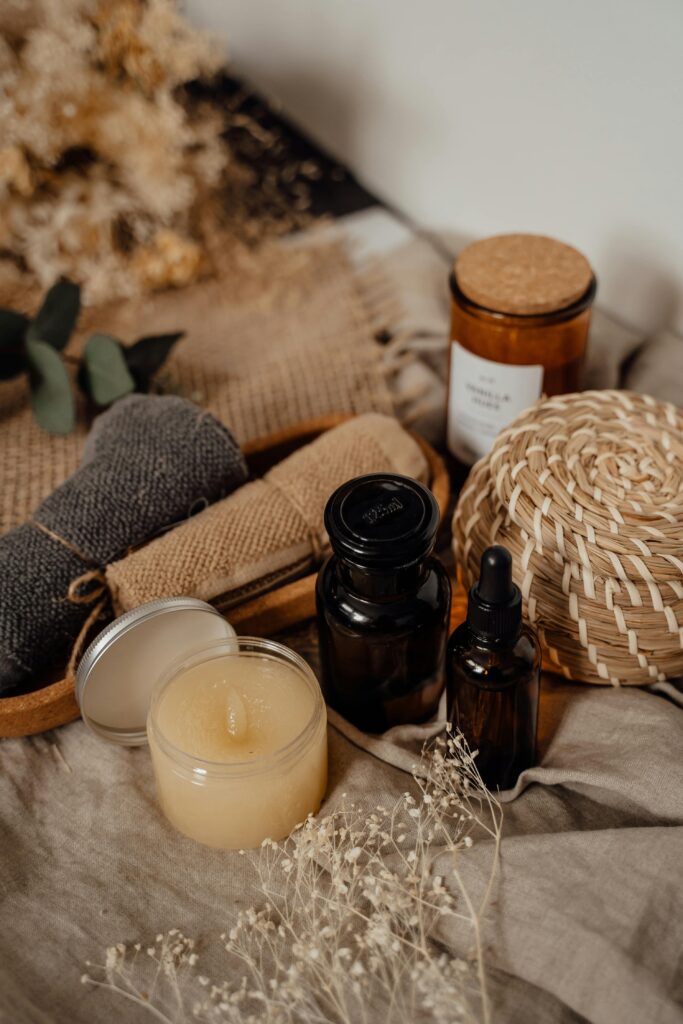Moisturizing is one of the most essential steps in any skincare routine. Hydrating the skin helps maintain its elasticity, prevents dryness, and protects it from environmental stressors. For this reason, choosing the right moisturizer is important. Body oil and lotion are two of the most popular choices among the various moisturizing options available. Both offer hydration and nourishment for the skin, but they work in different ways. So, how do you know which one is best for your skincare routine?
In this article, we will explore the differences between body oil and lotion, their benefits, and factors to consider when deciding which product best suits your skin’s needs.

Understanding Body Oil and Lotion
Before we dive into the specifics of body oil and lotion, it’s important to understand what each of them is and how they function.
Body Oil is a moisturizing product made from natural oils like argan oil, coconut oil, jojoba oil, or sunflower oil, among others. These oils are often rich in fatty acids, vitamins, and antioxidants that help nourish and hydrate the skin. Body oils are usually more concentrated than lotions and are designed to form a protective barrier over the skin to lock in moisture.
Body Lotion, on the other hand, is a lighter, creamier formula that typically contains water, oils, and emulsifiers. It has a higher water content than body oils, which makes it more suitable for people who want hydration without the greasy feeling that oils can sometimes leave behind. Lotions are often used for daily moisturizing to keep skin soft and supple.
Now, let’s compare both in terms of key factors to help you determine which might be best for your skincare routine.
1. Hydration and Moisture Retention
Both body oil and lotion aim to keep your skin hydrated, but they do so in different ways.
- Body Oil: The primary benefit of body oil is that it acts as an excellent moisture sealant. When applied, oils create a protective barrier on the skin, trapping in hydration and preventing water from escaping. Because body oils are rich in fatty acids and lipids, they provide long-lasting moisture to dry and flaky skin. This is especially beneficial for individuals with extremely dry or mature skin, as oils help to lock in moisture more effectively than lotions.
- Body Lotion: Lotions are formulated with a higher percentage of water, making them more easily absorbed by the skin. While they provide instant hydration, their effects may not last as long as body oils, especially for people with dry or dehydrated skin. However, lotions can still offer excellent hydration when used consistently, making them a great option for everyday use.
Verdict: If you’re looking for something that offers long-lasting moisture, body oil might be the better option, especially for dry or cracked skin. If you prefer a lighter product that provides quick hydration, body lotion could be the way to go.

2. Skin Type Considerations
Not all skin types are created equal, and certain products work better for specific needs.
- Body Oil: For those with dry or rough skin, body oils are often a better choice. The emollient properties of oils help to soften and smooth the skin by providing deep hydration. Since oils contain fewer chemicals and preservatives than lotions, they are also ideal for people with sensitive skin. Natural oils like almond oil or coconut oil can be soothing and help restore the skin’s natural moisture barrier.
On the other hand, if you have oily or acne-prone skin, you may want to avoid certain oils that could clog your pores or exacerbate skin conditions. It’s essential to choose a lightweight, non-comedogenic oil if this is a concern.
- Body Lotion: Lotions are typically lighter than oils and may be a better choice for people with oily or combination skin. Because they contain more water, they’re less likely to leave an oily residue on the skin. If you’re looking for something to provide daily moisture without making your skin feel greasy, lotion is a safe bet. Lotion formulations with added ingredients like salicylic acid or witch hazel can also benefit those with acne-prone skin.
Verdict: For those with dry skin, body oil can offer intense hydration and nourishment, while lotions are better for those with oily or sensitive skin, as they are less likely to leave a greasy finish.
3. Ease of Use
How easy a product is to apply can play a significant role in choosing the right one for your skincare routine.
- Body Oil: Oils can feel heavier and greasier than lotions, and it can sometimes take longer for them to absorb fully into the skin. However, body oils are usually more concentrated, so you need to use less product. If you’re applying it after a shower, oils work well because they lock in moisture when the skin is still damp. Some people love the soothing ritual of applying oil and massaging it into their skin, finding it to be a relaxing experience.
- Body Lotion: Lotions are typically easier to spread and absorb faster than oils, which makes them more convenient for daily use. They don’t leave a greasy residue, and they dry quickly, allowing you to get dressed soon after application. Because lotions are lighter in texture, they tend to be more versatile and can be used throughout the day without any inconvenience.
Verdict: If you prefer a product that’s quick and easy to use, body lotion is likely a better choice. However, if you enjoy a more luxurious, pampering experience and have time to let the oil sink into your skin, body oil could be ideal.

4. Scent and Sensory Experience
Another factor to consider when choosing between body oil and lotion is the sensory experience they provide, particularly their scent.
- Body Oil: Many body oils come in light, natural scents or are unscented, allowing you to enjoy the therapeutic benefits of the oils without overpowering fragrances. Some oils, like lavender or rose, offer an added element of aromatherapy. Body oils can leave your skin feeling smooth and subtly fragrant.
- Body Lotion: Lotions often come in a wide range of scents, from floral to fruity to earthy. If you enjoy a more fragrant skincare routine, you may prefer a lotion for its variety of scents. Some people also appreciate the lighter, less greasy feeling of lotion on their skin after application, especially if they’re wearing it throughout the day.
Verdict: If you enjoy a specific scent or prefer a more fragrant experience, body lotions offer more variety. For those seeking a more natural, subtle scent, body oils may be the better option.
5. Price and Ingredients
Price and the ingredients in each product should also play a role in your decision.
- Body Oil: High-quality body oils can be expensive, especially those made with premium oils like argan, marula, or rosehip. However, because oils are concentrated, a little goes a long way, which can justify the higher price. Additionally, many body oils are made with natural and organic ingredients, making them a good option for those seeking cleaner beauty products.
- Body Lotion: Body lotions are typically more affordable, especially those with basic formulations. While lotions may not always be as concentrated as oils, they often contain additional ingredients like vitamins, antioxidants, and essential oils that can enhance their effectiveness. Many lotions come in larger bottles, making them an economical choice for everyday use.
Verdict: If you’re looking for a cost-effective product for daily use, body lotion is generally more affordable. However, if you’re willing to invest in a higher-quality, concentrated product, body oil could offer superior nourishment.
Conclusion: Which Is Best for Your Skincare Routine?
The decision between body oil and lotion ultimately depends on your skin type, personal preferences, and skincare goals.
- Go for body oil if you have dry, rough, or mature skin and want deep hydration with long-lasting moisture. Oils are excellent for pampering your skin and providing nourishment, especially in the winter months or after a shower.
- Choose body lotion if you have normal to oily skin and prefer a lighter product that’s easy to apply, absorbs quickly, and provides instant hydration without leaving a greasy finish. Lotions are also more convenient for daily use and come in a wider variety of scents and formulations.
Ultimately, both body oil and body lotion can be part of a healthy skincare routine, so feel free to experiment with both and see which one works best for your skin. The most important thing is to keep your skin moisturized, nourished, and protected, no matter which product you choose.
